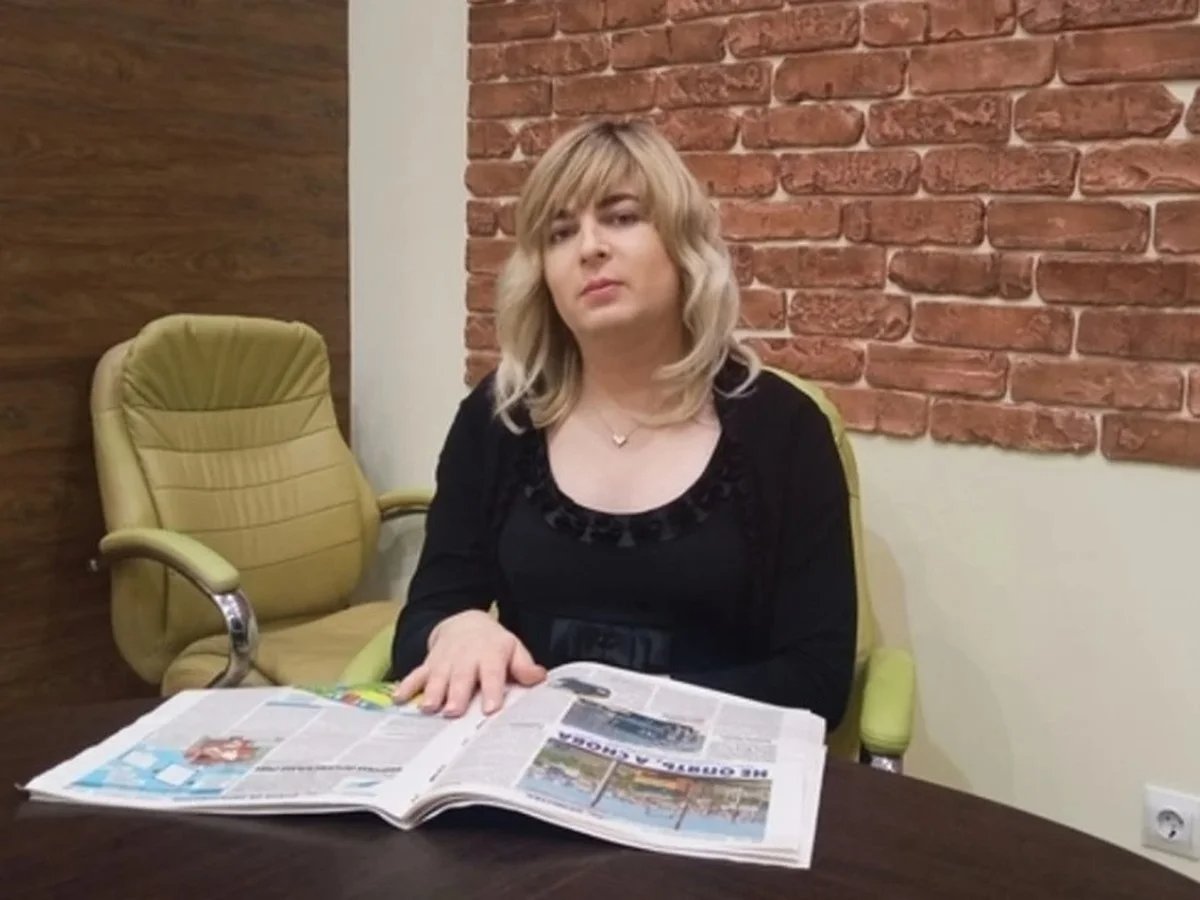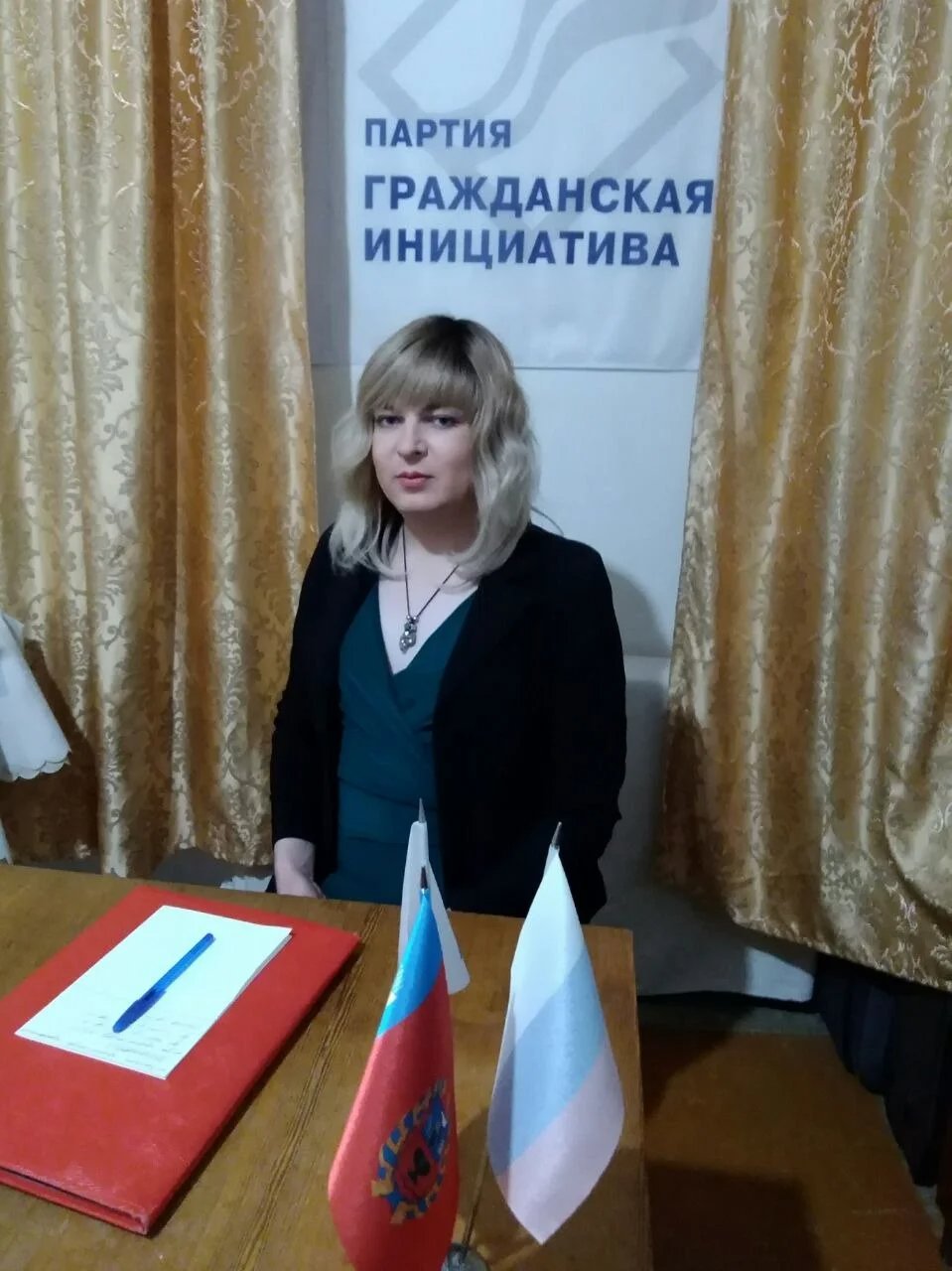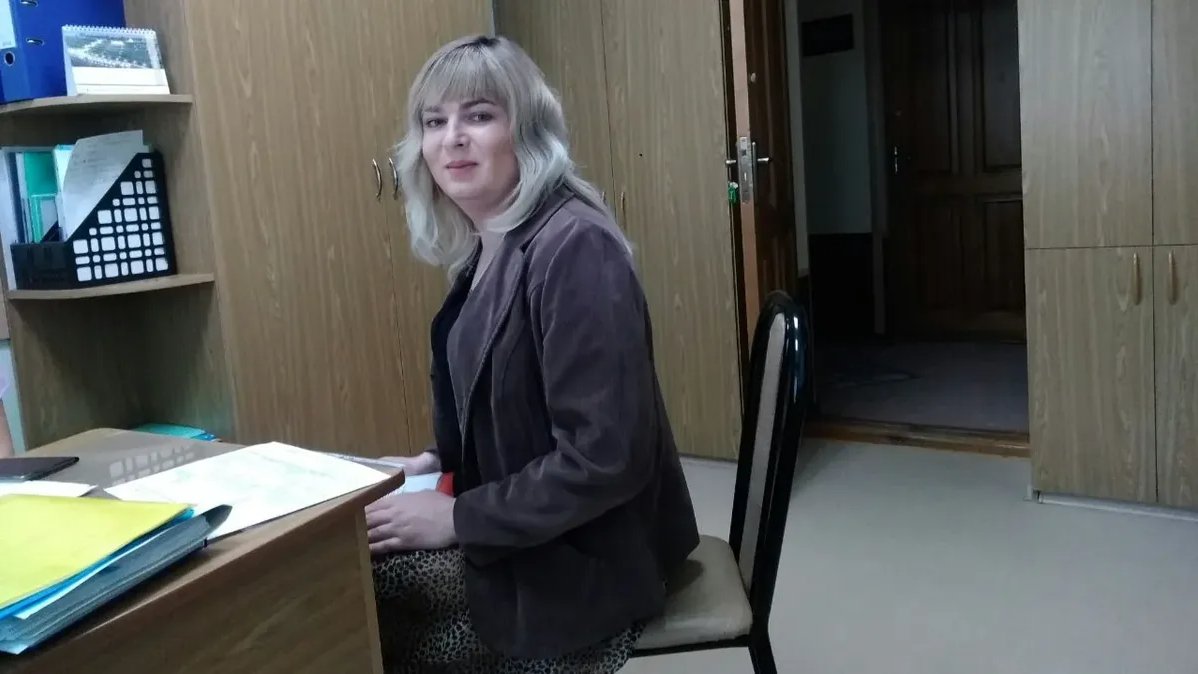Yulia Alyoshina is a transgender lawyer from the Altai region of Russia. In 2021, she became the leader of the regional branch of the Civic Initiative Party and the first transgender politician in Russia.
She had to resign after the Russian parliament passed the so-called “LGBT propaganda” law, which equates sharing any information about LGBT people to propaganda.
Alyoshina has gone back into politics in 2023, amid the growing repressions against the queer community: she is planning to run for the governor of the Altai region. Novaya-Europe has talked to Alyoshina about her political goals.
I remember you saying that you were quitting politics. Why did you decide to make a comeback now?
It’s true, last autumn, when the State Duma approved the law that bans “LGBT propaganda”, I stepped down as the chair of the Civic Initiative party in the Altai region, but I still remained a party member.
This year, my fellow party members surprised me by proposing I run for governor. I asked myself: “Why not?” and agreed. I’m certain that the fact that I was born in the wrong body is not as important to the voters as my honesty, integrity, and genuine desire to make our region better.
Why was it the law on banning the so-called “LGBT propaganda” that made you quit?
The law doesn’t clearly explain what’s propaganda and what’s sharing information, so literally any type of information about LGBT people could be viewed as propaganda. I had never spread propaganda but I couldn’t imagine how one could continue public political work while openly being a transgender woman. Furthermore, I was very aware of the fact that if I were to remain the head of the party’s regional branch, their jobs would become more difficult, seeing as the media would just not cover the work done by Civic Initiative while it was headed by a transgender woman. The journalists themselves could be facing fines for spreading propaganda.
You’re planning to run for governor. At what stage of the process are you?
The party hasn’t announced my candidacy officially yet, there’s one more step left. But I don’t have any big doubts seeing as the initiative came from the party. However, announcing the candidacy doesn’t mean that there are no more obstacles. One has to understand that when it comes to today’s elections in Russia, only those candidates who are approved by the government are allowed to run.
I don’t think that I’m a very dangerous opponent, so I might be allowed to run, maybe. On the other hand, the State Duma is currently passing a bill that bans gender transition. So there might be difficulties.
Still, I understand very well that I can’t become the governor the way things are now. But let this be my form of protest.
If you’re allowed to run after all, will your programme include protections for LGBT people?
Yes, of course. I don’t think it’s right to focus the campaign on only [this topic] because there are many other issues related to the economy, society, and law. But definitely some parts of the agenda will be focused on protections for LGBT people as a social group.
Will the programme touch upon the war in Ukraine?
No. I prefer speaking frankly. What you’ve just said is the federal agenda, it’s not the jurisdiction of a governor.
Are you not scared to run for office with this programme in these times?
There could be hurdles in the way because it will contradict the federal law. We will have to, of course, think about it a lot and find a way not to directly contradict the federal legislation.
As for what I’m feeling right now… I had received the offer to run for governor before the bill banning gender reassignment was introduced to the State Duma. And last week, it was passed in the first reading. Yes, I am afraid, it scares me. But only a fool is never scared, we have to face our fears.

Photo: Alexander Zakharov / MK Altai
Two years ago, you said in an interview with Meduza that you were against “LGBT propaganda” but in favour of “tolerance and being kind to each other”. What are your thoughts on the “LGBT propaganda” laws passed last year?
Back in autumn 2022, I spoke out against this law, because it doesn’t define clearly what propaganda means. In theory, when any law is written, the first things that are put down are terms and definitions. But in this case, they are at the mercy of [Russia’s media watchdog] Roskomnadzor.
As a lawyer, I think that’s incorrect and that the law is discriminatory because it denies the fact that “traditional” and “non-traditional” sexual relations and preferences are the same. In that interview, when I was talking about propaganda, I meant you shouldn’t put the LGBT community above others. I think that there should be no propaganda at all of any kind.
Still, I know that the entire world considers a different sexual orientation a simple personal trait. Meanwhile, this law brands LGBT people socially unequal or, simply put, second-rate citizens.
Have you found that the treatment of members of the LGBT community changed after the passing of these laws?
Yes. I realised this after talking to different people, I try not to stay in my bubble. I get the feeling that there’s more conflict among the public, everything has become more radical. There’s a split into two camps happening, and there are fewer and fewer of those who are in the middle, who stay neutral. In the Altai region, the people are unhappy, for example, that the quality of life is decreasing, and they are starting to talk about it. When the partial mobilisation was announced here, many were angered and even shocked.
If we are talking about the treatment of LGBT people, there’s also a noticeable radicalisation happening. The views [on this topic] among residents of the region changed for the worse. I can even provide an example without giving names. In 2021, when I had just become the leader of the party’s regional branch, one of my mum’s friends was supportive of me. But when the law banning “LGBT propaganda” was being discussed in 2022, she changed her opinion of me. This woman watches TV, it seems that the government’s rhetoric on the topic of the LGBT community influenced her.
[Russian] deputies, the State Duma spokesman Vyacheslav Volodin among them, think that gender transition is a very easy process. Is that true?
It’s not. Many officials refer to private clinics: allegedly, in exchange for money one can get all the [needed] documents within a day. As for me, I went through a state hospital.
Actually, before going to a doctor, I looked into private clinics too. And I know that their examinations take a month or two, not a single day. Furthermore, these clinics only exist in Moscow and St. Petersburg. And in order to undergo a transition, a person has to get examined, talk to a psychiatrist, a sexologist, and a clinical psychologist, pass some tests. And only then, at the final stage, there’s a medical commission with all of the specialists who make the decision.
Can you tell us how long the transition process took for you?
Around 18 months. I did it all in the Altai region. There’s no private clinic in [the regional capital] Barnaul that I could go to. So I went to a state psychiatric hospital. First, I was seen by a psychiatrist, he immediately got me an appointment with a medical psychologist. There were a lot of tests. I recall that one of them had 500 questions. And this test had to be done in one sitting. From time to time, I had to talk to a psychiatrist, I had appointments with a sexologist.
I was supervised by a medical psychologist, a psychiatrist, a sexologist, and an endocrinologist for a little bit over a year. Then I had to pass two commissions. Within a year, one of them ruled that I had no mental illnesses, and then a year or a year and a half later the second one gave me the diagnosis of “transsexualism” and said that there were no psychiatric contraindications for a gender transition.
Then I went to the psychiatric hospital again, because that [diagnosis] wasn’t enough; by the Health Ministry’s order, there’s another [medical certificate] needed, it allows one to change the gender marker on their documents.
It took me several months more to get the second certificate that’d allow me to change the gender marker. So, it was about 18 months from the first visit, all in all.

Photo: Telegram / alyoshina_julia
As someone who has gone through gender transition, what do you think about the law banning it?
Ah… That bill was passed in the first reading last week, and this entire time I’ve been stressed out and in shock. In this state, it’s a bit hard for me to speak. But I want to say that this bill is not only discriminatory but it also strips transgender people of medical care. Additionally, it prohibits people from changing their gender marker in documents. There’s one exception in the law — congenital anomalies of sex organs in children. But I have to note that the UN recognises genital surgery on children to be torture, so the international medical community is inclined to think that such surgeries should not be done on children.
Let a person grow up, mature, find themselves, and only once they’re of age can they do the surgery. I think there’s some rationality and common sense to this [approach]. I’ve read in the media that the Health Ministry will prepare amendments before the second reading of the bill. Let’s see what they are. It could be that they will ease up on some of the [particulars] of this tough bill.
After the bill was announced, many activists began to criticise federal politicians who had left Russia for not speaking out about the transphobic law. Do you think they should’ve said something?
First, I’ll say that I don’t judge the opposition politicians who left for not saying anything about the new transphobic law. But I hope they will do so in the future.
Still, it’s very important that federal Russian politicians speak out about the new transphobic law because it restricts people’s right to medical help. That’s a bad trend. Usually, it starts with these bans, for example, governments banning women from getting abortions.
The Russian government decided to start somewhere else. They chose the group that is discriminated against the most and decided to restrict the rights of its members first.
But this could be only the beginning. The restrictions on receiving medical assistance can end up applying not only to us but also to various groups within Russian society.
During a recent discussion of this bill, Health Minister Mikhail Murashko said that on Putin’s request, a psychiatric institution would be created in Russia that would, among other things, be tasked with studying “behavioural patterns”. Many interpreted this to mean that conversion therapy would be soon used “to cure” LGBT people. What do you think?
I think it’s important that this declaration was made not by some deputy but by the health minister. Thus, it cannot be ignored. This news, of course, shocks, astounds, and enrages me — conversion therapy was previously used in many countries but it did not yield good results, so its use was stopped.
The name “Behavioural Research Institute” is quite vague, we don’t know what meaning was put behind these words. But upon learning about this idea announced by the health minister, I started thinking about leaving Russia. It could be too soon for this conversation, but on the other hand, you see how quickly regulatory legal acts are approved in Russia! I understand perfectly well that this transphobic law will make trans people in Russia suffer. Furthermore, I don’t even know whom to ask for help.
For now, of course, I’m not going anywhere and am following the plans I previously made, that you and I discussed. But if we look at the situation objectively, it will be even harder for me than for other transgender people because I’m an openly transgender woman and there is a lot written about me in the media, I’m the first transgender politician in Russia. Taking all of this into account, if the topic of forced psychiatric treatment will continue being brought up, if it becomes somehow regulated or legislated, then I’ll need to think about leaving.
Why do you think it’s now that there are so many bills aimed at LGBT people — both on the ban of “LGBT propaganda”, as in the sharing of any information about this community, and on the ban on gender transition?
Because public policies in Russia are generally becoming harsher. Even representatives of the government themselves do not hide this fact. Furthermore, the foreign policy of a country has always influenced, influences, and will continue influencing the domestic one. The LGBT community is a victim of the general trend of stricter legislation. For example, digital draft notices — now the responsibility lies with the person receiving the notice, they have to find out whether they’ve received it or not. They’re tightening the screws. They’re doing it with criminal legislation too.
Many representatives of the government say: it’s bad that according to our Constitution there cannot be a dominant ideology. I think that the Russian government has decided to promote a certain ideology after all, and transgender and LGBT people, it seems, have no place in this ideology.
Join us in rebuilding Novaya Gazeta Europe
The Russian government has banned independent media. We were forced to leave our country in order to keep doing our job, telling our readers about what is going on Russia, Ukraine and Europe.
We will continue fighting against warfare and dictatorship. We believe that freedom of speech is the most efficient antidote against tyranny. Support us financially to help us fight for peace and freedom.
By clicking the Support button, you agree to the processing of your personal data.
To cancel a regular donation, please write to [email protected]

